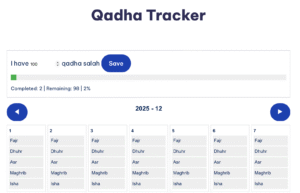Islamic Parenting of Teenagers and the Importance of Religious Education
Navigating the transition from childhood to adulthood is a critical and challenging period for both parents and children. In many cultures, this stage is recognized as adolescence or the teenage years, but from an Islamic perspective, there is no specific “teenager” category. Instead, once a child reaches puberty—typically between the ages of 11 and 15—they are considered young adults responsible for their actions before Allah. This shift requires parents to adapt their parenting style to focus on guiding and empowering these young adults. By balancing independence, discipline, and nurturing, parents can help their children thrive. Enrolling them in Islamic classes can significantly deepen their understanding of faith, further supporting their development.
5 Positive parenting solution from Quran and Sunnah”Islamic parenting
Embracing Independence and Responsibility
As children mature into young adults, it is essential for parents to gradually release control and allow their children more independence. This means stepping back from micromanaging their lives and encouraging them to take responsibility for their actions. Providing young adults with the freedom to make decisions helps them develop a sense of self-awareness and responsibility, which are crucial for their growth.
This is an independent website by a Female scholar.If you benefit from our articles, Help our Projects by buying our Worksheets (Link1) or (Link2) or removing ads. Bookmark our website so that you can visit it daily for(Digital Tasbih) or (Salah Tracker).
Allowing Privacy and Autonomy
Granting teenagers privacy is an important aspect of fostering independence. As they grow, they need space to explore their identities and make personal choices. This doesn’t mean parents should completely withdraw support; rather, they should remain available to offer guidance and advice when needed. For example, parents can encourage young adults to set goals and make decisions about their education and future while providing input on potential outcomes and consequences.
Positive Interactions and Constructive Discipline
Maintaining a positive relationship with young adults is crucial for their emotional and spiritual development. Parents should strive to have more positive interactions than negative ones, focusing on encouragement and affirmation rather than constant criticism and reprimand. This approach builds trust and respect, making young adults more receptive to guidance.
Balancing Discipline with Encouragement
When discipline is necessary, it should be paired with constructive conversations about solutions and understanding. For instance, rather than simply punishing a teenager for breaking a rule, parents can engage them in discussions about the consequences of their actions and how they can make better choices in the future. This approach empowers young adults to learn from their mistakes and develop problem-solving skills.
Encouraging Learning Through Experience
Allowing teenagers to learn from their own mistakes is a valuable part of their development. Shielding them from failure prevents them from gaining essential life skills and understanding the impact of their choices. Parents should encourage young adults to take calculated risks and learn from the outcomes, providing support and guidance as needed.
Engaging in Problem-Solving
When a mistake occurs, involving teenagers in the problem-solving process can be beneficial. Rather than imposing solutions, parents can discuss options with their children, encouraging them to think critically and evaluate potential outcomes. This approach fosters independence and helps young adults develop decision-making skills.
Avoiding Material Bribes and Promoting Responsibility
In today’s consumer-driven society, it can be tempting for parents to shower their teenagers with the latest gadgets and privileges to win their affection. However, this approach can lead to entitlement and hinder the development of responsibility. Instead, parents should encourage young adults to earn rewards through responsible behavior.
Instilling a Sense of Achievement
By setting clear expectations and providing opportunities for young adults to earn privileges, parents can instill a sense of achievement and self-worth. For example, parents might reward consistent academic performance with a special outing or increased independence. This approach encourages teenagers to work towards goals and understand the value of their efforts.
Building Community Awareness
Helping young adults understand that they are part of a larger family and community is essential for their development. This sense of belonging fosters empathy and responsibility towards others. Parents should encourage their children to participate in family activities and community events, emphasizing the importance of contributing to and supporting their communities.
Encouraging Community Involvement
Parents can support community involvement by encouraging teenagers to volunteer or participate in community service projects. This helps them develop a sense of civic responsibility and strengthens their connection to the world around them.
Connecting with Positive Mentors and Role Models
In addition to family support, young adults can benefit from connections with positive mentors and role models outside the family. These individuals can provide additional guidance and perspective, reinforcing the values taught at home. Parents should encourage their children to seek out mentors in their community or through extracurricular activities.
Seeking Guidance and Perspective
Mentors and role models can offer valuable insights and support as young adults navigate the challenges of growing up. By building relationships with trusted individuals, teenagers can gain different perspectives and learn from the experiences of others.
Enriching Young Minds: The Benefits of Islamic Classes
As a dedicated Islamic educator, I offer specialized classes for children and young adults that cover key aspects of Islam, including Tafsir (interpretation of the Quran), basic of Islam Course for kids, and the 99 names of Allah, Recognizing Allah Course. These classes are designed to nurture a strong connection to faith, enhance understanding, and build a solid moral foundation.
Comprehensive Learning
Our curriculum is carefully crafted to cover essential Islamic teachings that resonate with young adults, helping them apply these principles in their daily lives. The classes provide a well-rounded education, focusing on both spiritual and practical aspects of the faith.
Engaging and Interactive Environment
To ensure that students remain engaged and motivated, we employ interactive teaching methods that make learning enjoyable. Activities, discussions, and multimedia resources are incorporated to create a dynamic and immersive learning experience.
Personalized Attention and Support
Our classes are designed to provide personalized guidance, allowing each student to explore their unique relationship with their faith. Small class sizes and dedicated instructors ensure that every student receives the attention and support they need to thrive.
Community and Support
By joining our classes, students become part of a supportive community that encourages growth and mutual respect. This sense of belonging helps young adults develop confidence in their beliefs and fosters lifelong connections with their peers.
Special Focus Areas
- Tafsir: Understanding the Quran is crucial for spiritual growth. Our classes delve into the meanings and contexts of the Quranic verses, helping students appreciate its wisdom and apply its teachings to their lives.
- Basic Fiqh: Learning about Islamic law and practice equips young adults with the knowledge to make informed decisions that align with their faith. Our classes cover fundamental aspects of Fiqh, ensuring students understand their religious obligations and rights.
- 99 Names of Allah: Exploring the names and attributes of Allah fosters a deeper connection with the Creator, enhancing spiritual awareness and devotion. Through our classes, students learn to appreciate the beauty and significance of each name, enriching their spiritual journey.
Enroll Today
Investing in your child’s Islamic education is an investment in their future. Our classes provide a nurturing environment where young adults can grow spiritually and intellectually. By choosing our program, you are empowering them to become responsible, knowledgeable, and compassionate members of the Muslim community. Join us in this journey of faith and growth, and watch your child thrive in their newfound understanding and love for Islam. Enroll today and give them the gift of knowledge that will last a lifetime.
Discover more from Islam Hashtag
Subscribe to get the latest posts sent to your email.






